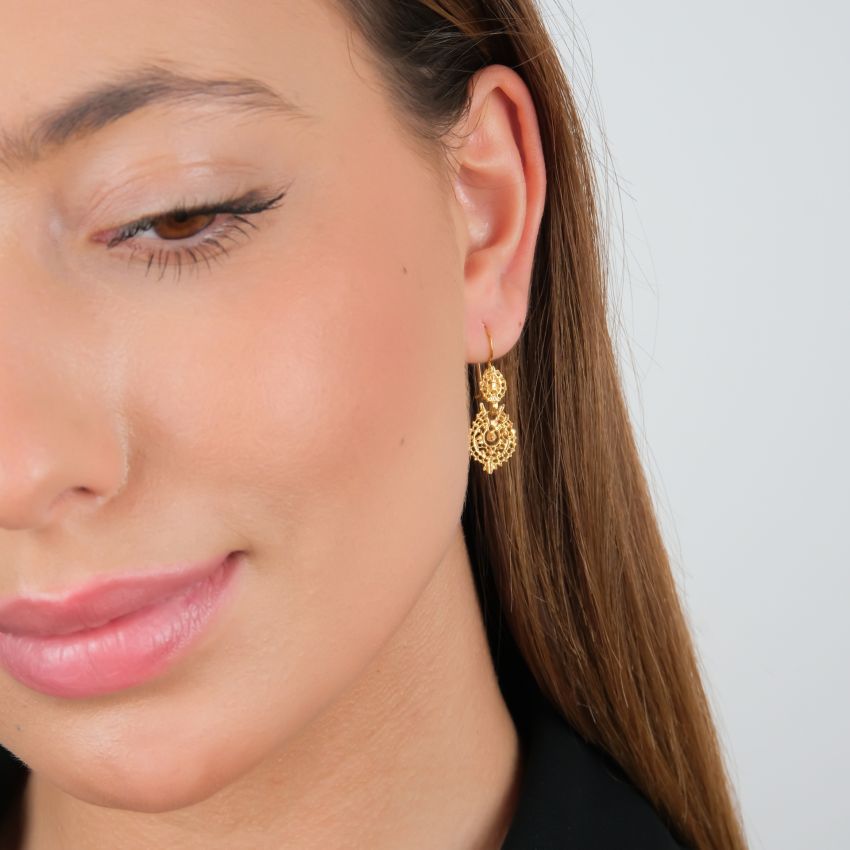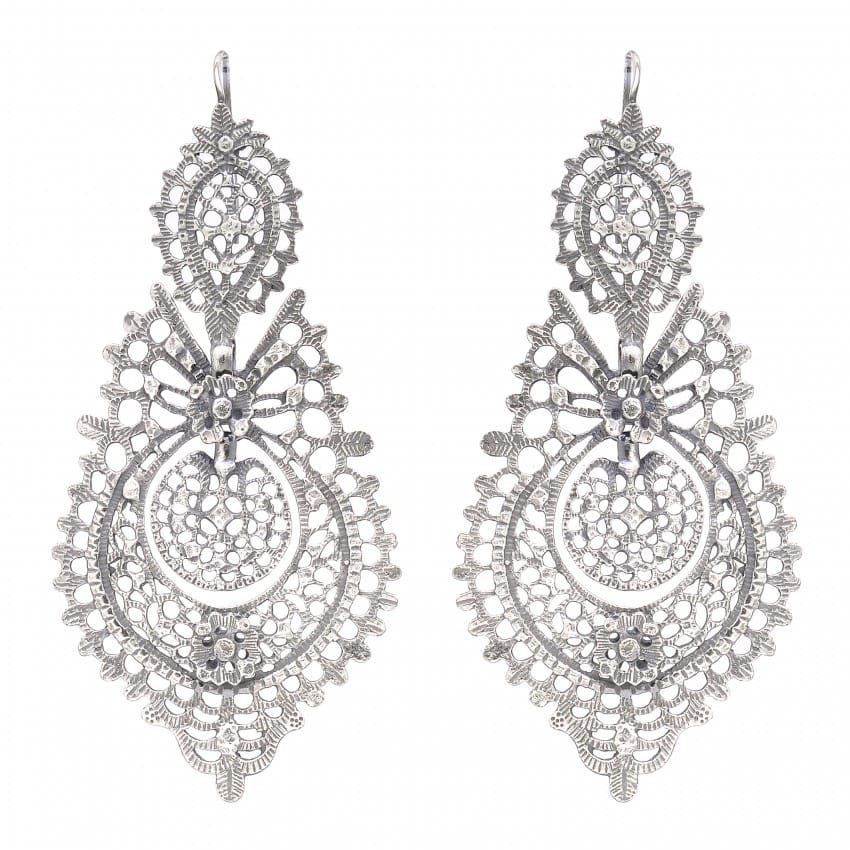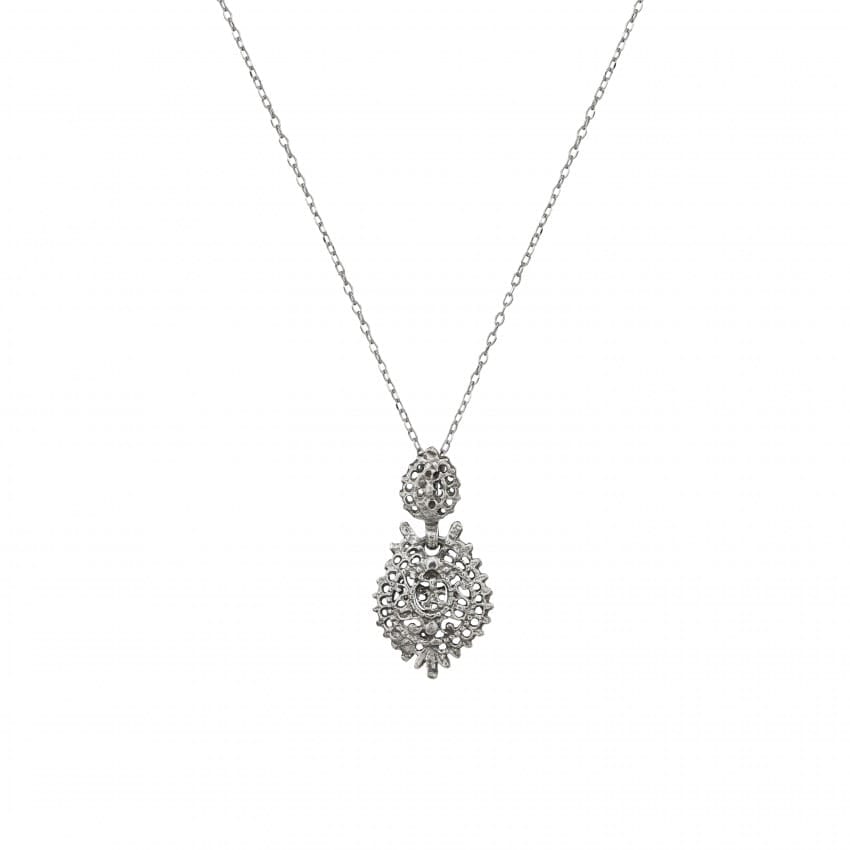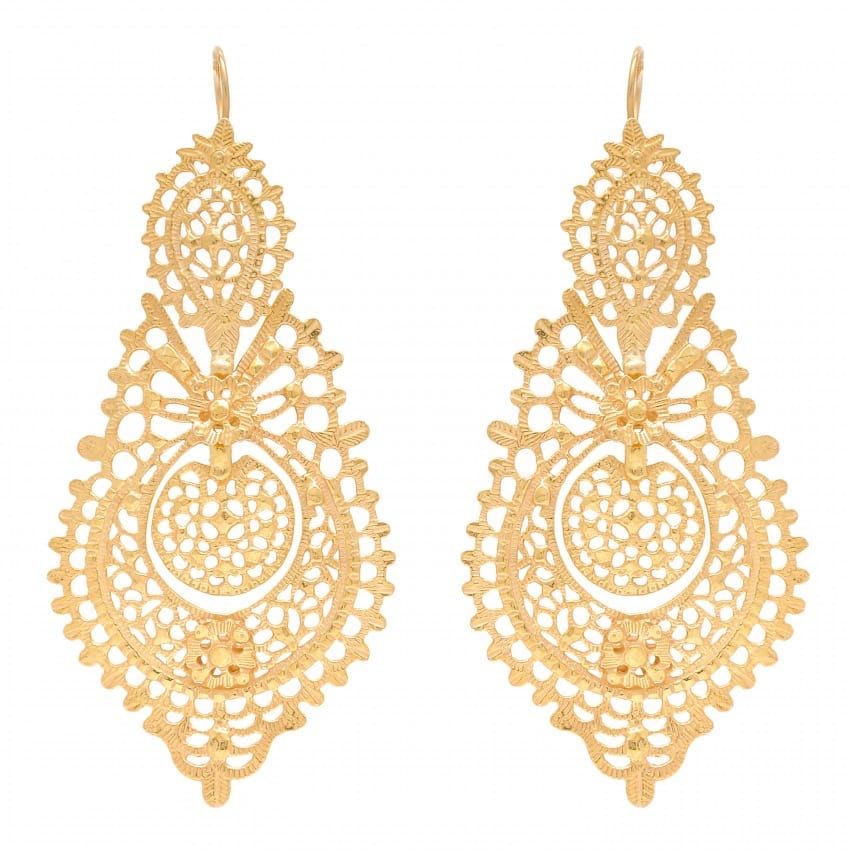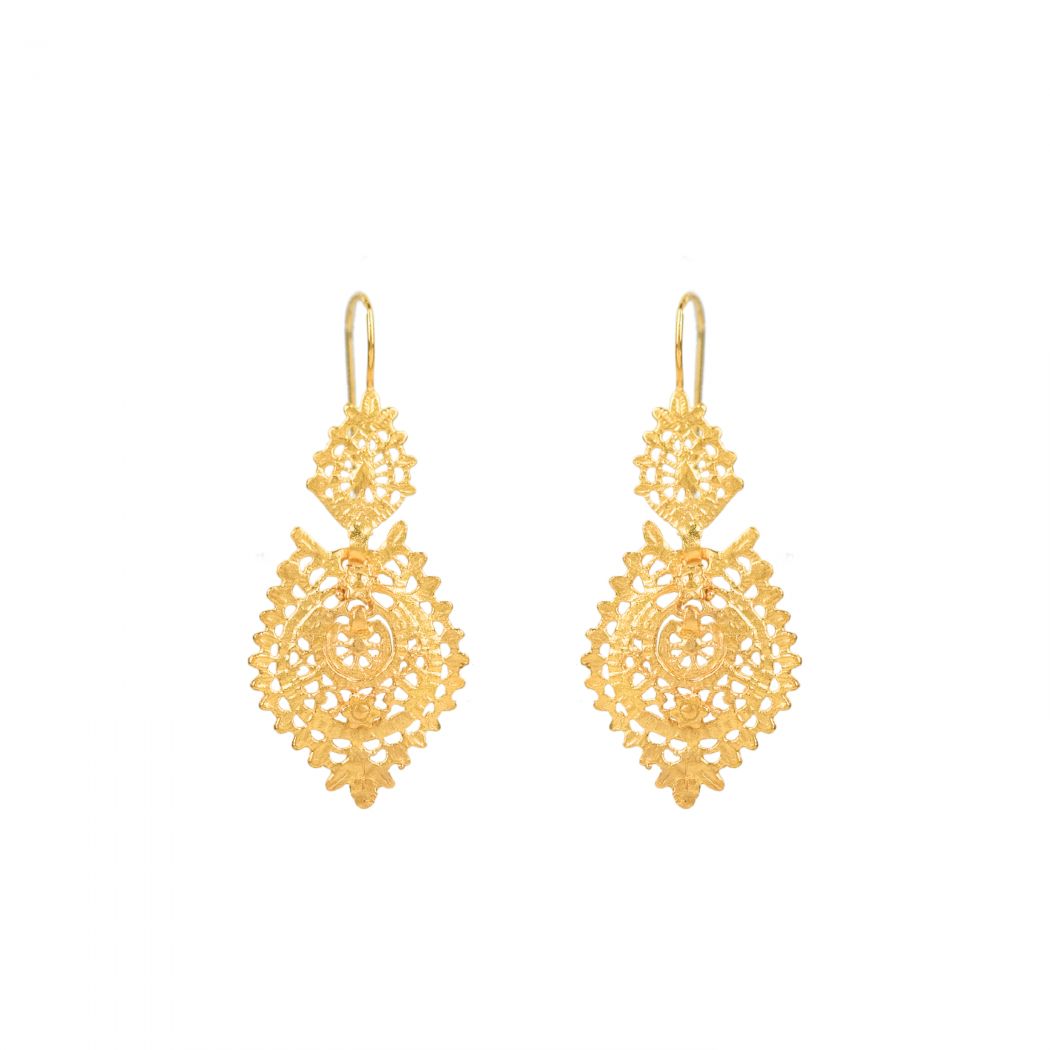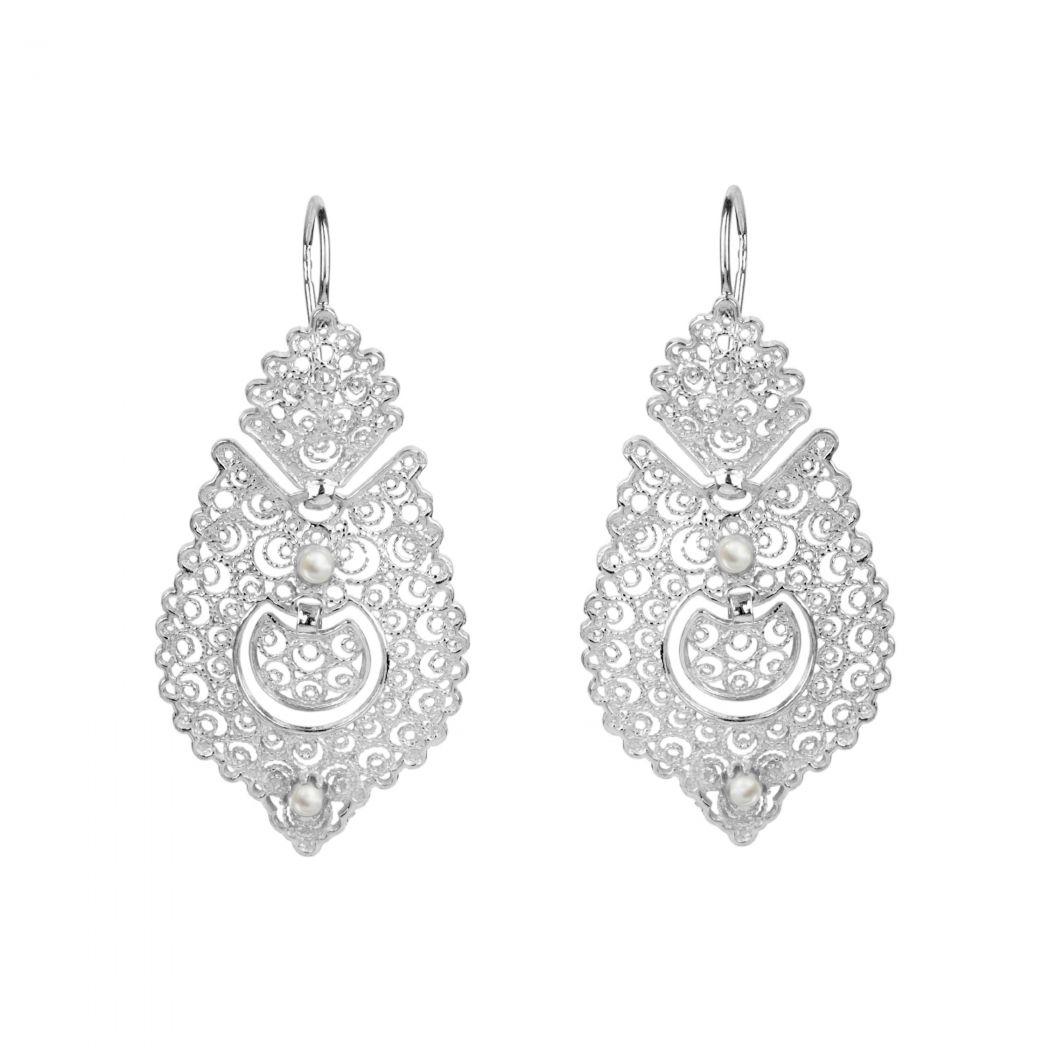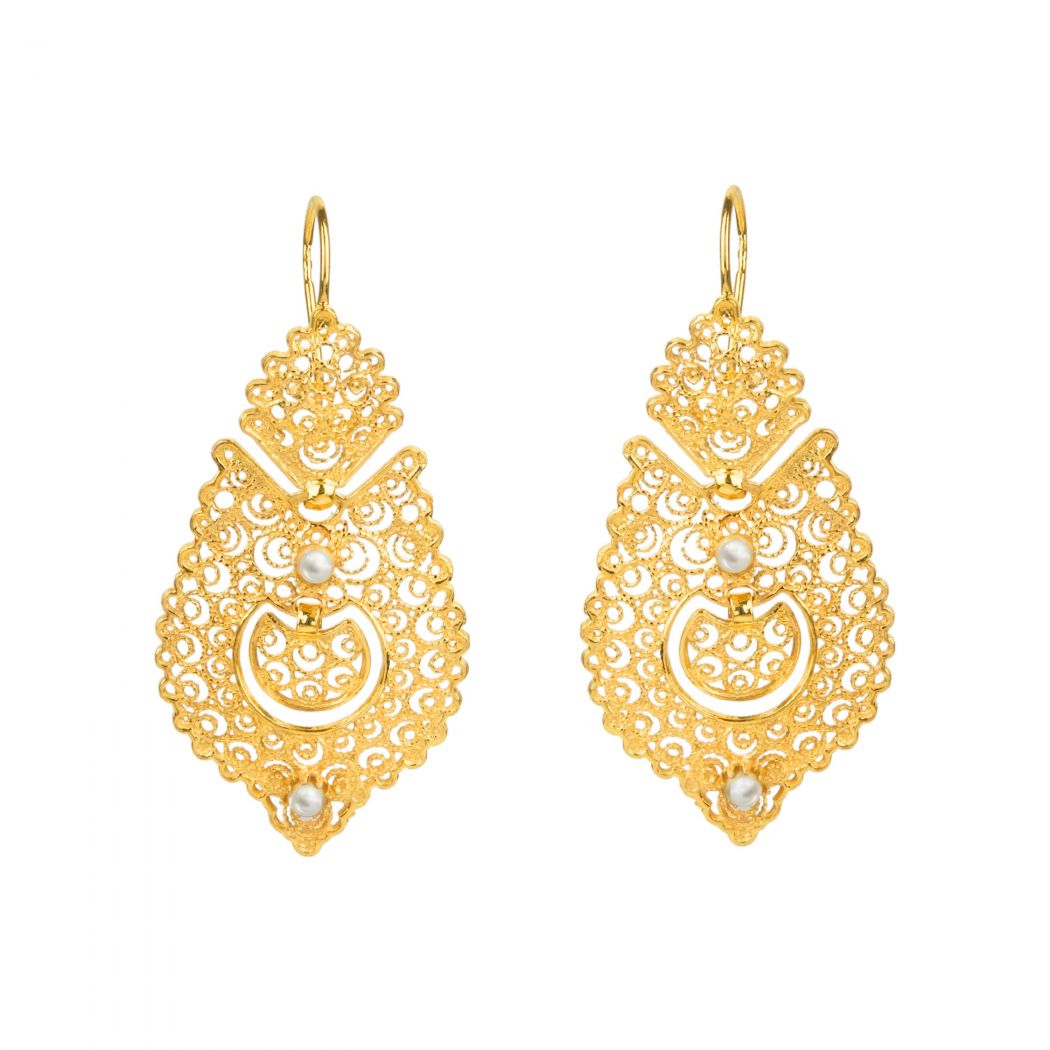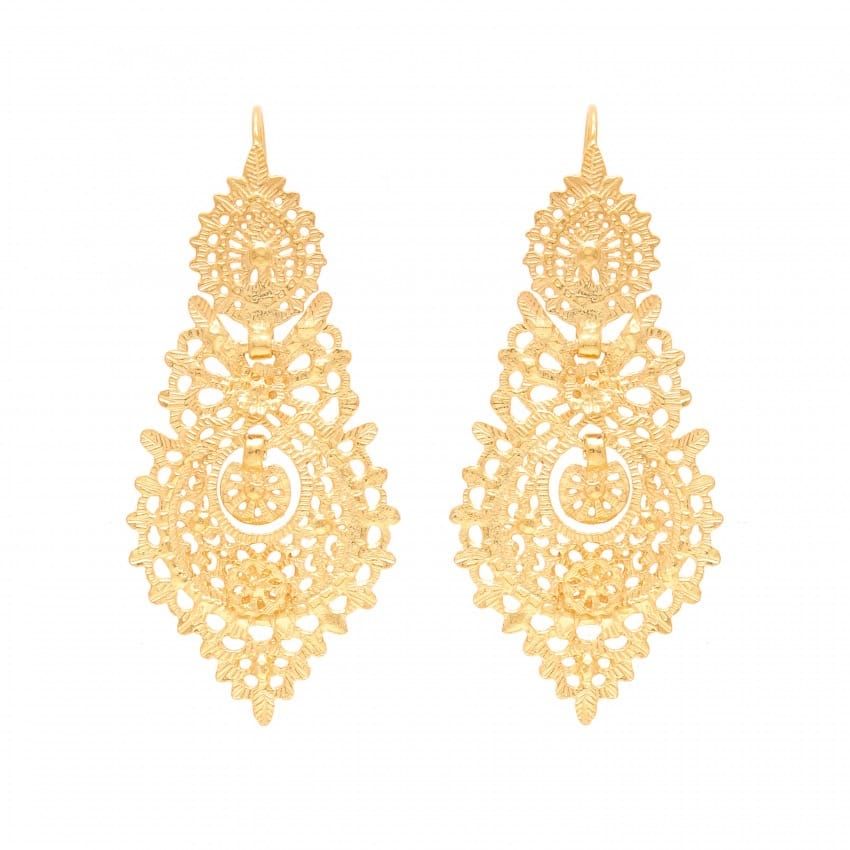- Ningún producto
HAS AÑADIDO AL CARRITO DE COMPRAS
PENDIENTES DE LA REINA
PENDIENTES DE LA REINA
HISTORIA DE LOS PENDIENTES DE LA REINA
También conocidos como "mujer rica" y "mujer noble", entre otros, los Pendientes a la Reina son un tipo de pendiente que comienza a aparecer como adorno en las orejas de niñas y señoras a partir del reinado de María I, en la segunda mitad del siglo XVIII, pero que solo adquiere una gran popularidad en el reinado de su bisnieta María II a mediados del siglo XIX, y que aún hoy en día es muy apreciado por el público femenino, incluso entre las capas más jóvenes.
De hecho, se desconocen los orígenes de los pendientes en cuestión. Además de la tradición mencionada, otros autores señalan que estos derivan de un modelo más antiguo que se inspira en las formas más clásicas del cuerpo femenino y en su sugerencia de fertilidad.
Otros sugieren que derivan de modelos utilizados por la nobleza y realeza del siglo XVIII, incrustados con piedras preciosas, principalmente diamantes, pero que fueron simplificados por las clases menos adineradas. Toda esta evolución resulta en una composición de elementos similares a los que podemos encontrar en otras tipologías, como arrecadas, sequilés, laças.

Rainha D. Maria II, a quien se le ofreció un par de pendientes a la Reina en 1852, popularizando el modelo y a quien estos deben su nombre.
Otros sugieren que derivan de modelos utilizados por la nobleza y realeza del siglo XVIII, incrustados con piedras preciosas, principalmente diamantes, pero que fueron simplificados por las clases menos adineradas. Toda esta evolución resulta en una composición de elementos similares a los que podemos encontrar en otras tipologías, como arrecadas, sequilés, laças.
HISTORIA DE LOS PENDIENTES DE LA REINA
También conocidos como "mujer rica" y "mujer noble", entre otros, los Pendientes a la Reina son un tipo de pendiente que comienza a aparecer como adorno en las orejas de niñas y señoras a partir del reinado de María I, en la segunda mitad del siglo XVIII, pero que solo adquiere una gran popularidad en el reinado de su bisnieta María II a mediados del siglo XIX, y que aún hoy en día es muy apreciado por el público femenino, incluso entre las capas más jóvenes.

Rainha D. Maria II, a quien se le ofreció un par de pendientes a la Reina en 1852, popularizando el modelo y a quien estos deben su nombre.
De hecho, se desconocen los orígenes de los pendientes en cuestión. Además de la tradición mencionada, otros autores señalan que estos derivan de un modelo más antiguo que se inspira en las formas más clásicas del cuerpo femenino y en su sugerencia de fertilidad.
Otros sugieren que derivan de modelos utilizados por la nobleza y realeza del siglo XVIII, incrustados con piedras preciosas, principalmente diamantes, pero que fueron simplificados por las clases menos adineradas. Toda esta evolución resulta en una composición de elementos similares a los que podemos encontrar en otras tipologías, como arrecadas, sequilés, laças.
El arte de los detalles.

El modelo Brincos à Rainha está compuesto por un top en forma de botón que se sujeta al lóbulo de la oreja, ya sea con gancho o tornillo, seguido de una articulación que le confiere mucho movimiento y lo conecta con el cuerpo inferior.
El modelo Brincos à Rainha está compuesto por un top en forma de botón que se sujeta al lóbulo de la oreja, ya sea con gancho o tornillo, seguido de una articulación que le confiere mucho movimiento y lo conecta con la parte inferior del cuerpo.

Este, a su vez, compuesto por un lazo, muy estilizado, fundido a un anillo trabajado que termina en pico, dándole un aspecto más triangular; el interior de este anillo presenta una segunda articulación de la cual cuelga una lúnula generalmente circular, ricamente decorada.
Este, por su parte, compuesto por un lazo, ya muy estilizado, fundido a una argolla trabajada que termina en pico, dándole un aspecto más triangular; el interior de esta argolla presenta una segunda articulación de la cual cuelga una lúnula generalmente circular, ricamente decorada.

Es común que este tipo de composición tenga como decoración suplementaria pequeñas flores superpuestas, especialmente para disimular las articulaciones.
Es común que este tipo de composición tenga como decoración suplementaria pequeñas flores superpuestas, especialmente para disfrazar las articulaciones.
PENDIENTES DE LA REINA
ORO 19,2 quilates
La Colección Oro Portugués, hecha en oro 19,2Kt, es una selección de orfebrería tradicional portuguesa. El oro portugués es de los más puros del mundo y está certificado por la Contrastaria da Casa da Moeda.
Descubre nuestros Pendientes a la Reina en Oro 19,2kt.
PENDIENTES DE LA REINA
ORO 19,2 quilates
La Colección Oro Portugués, hecha en oro 19,2Kt, es una selección de orfebrería tradicional portuguesa. El oro portugués es de los más puros del mundo y está certificado por la Contrastaria da Casa da Moeda.
Descubre nuestros Pendientes a la Reina en Oro 19,2kt.
PENDIENTES DE LA REINA
ORO 19,2 quilates
La Colección Oro Portugués, hecha en oro 19,2Kt, es una selección de orfebrería tradicional portuguesa. El oro portugués es de los más puros del mundo y está certificado por la Contrastaria da Casa da Moeda.
Descubre nuestros Pendientes a la Reina en Oro 19,2kt.



